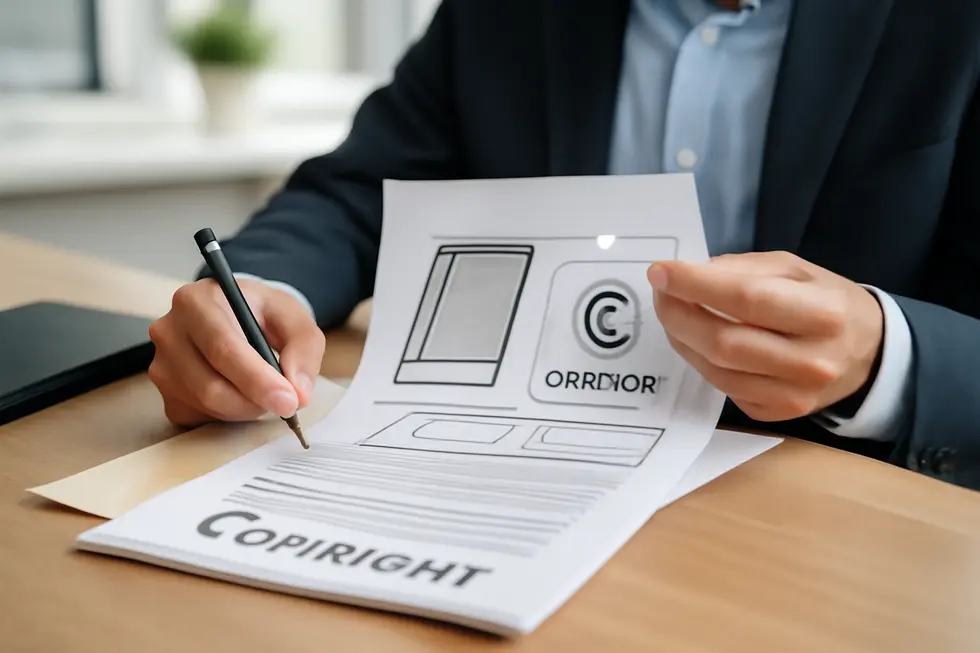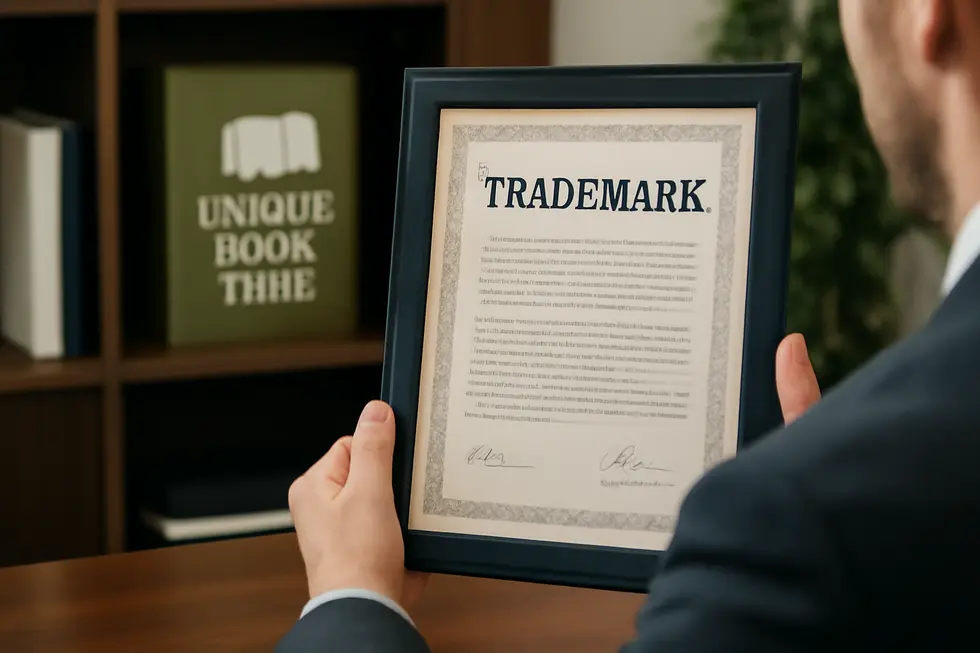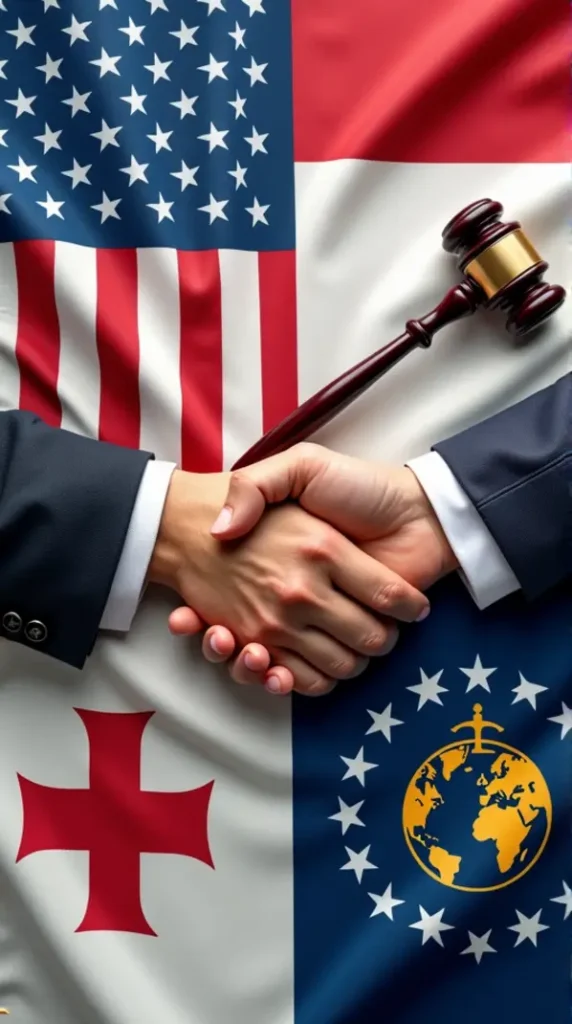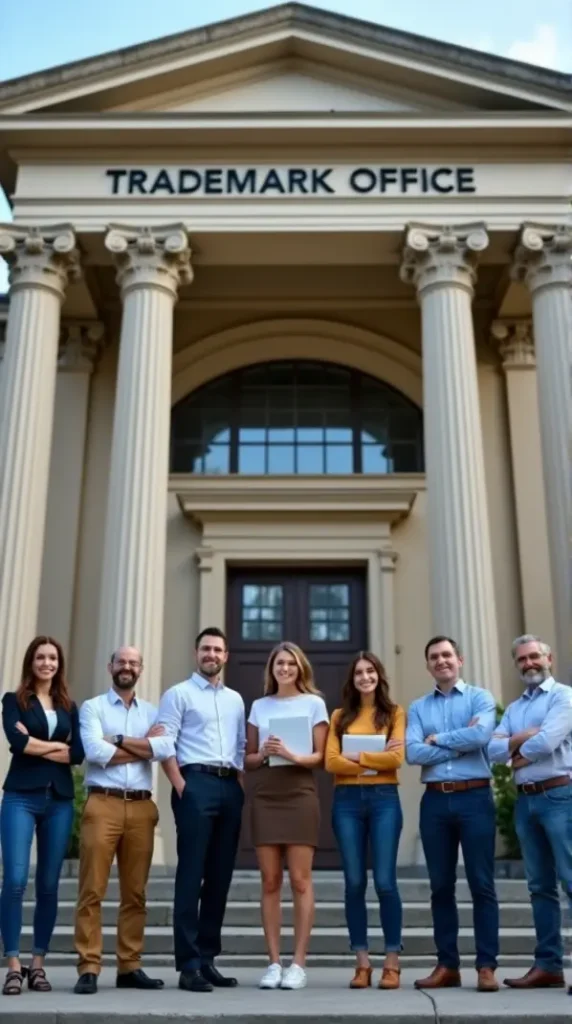Introduction
Titles play an essential role in branding and marketing, but there is often confusion about whether they are protected by copyright law. Knowing the limitations of copyright protection and the potential uses of trademark law is crucial for business owners who want to safeguard their brand identity. This article explores the nuances behind the question, “Are titles copyrighted?” by breaking down copyright considerations, explaining trademark protections, and offering legal resources to guide your brand’s security. Each chapter builds a comprehensive perspective to help you understand what protections exist for titles and how to effectively use them for your business advantage.
Tables of Contents
Chapter 1: Copyright Considerations Regarding Are Titles Copyrighted
- Navigating the Boundaries of Copyright Protection for Titles
- Beyond Copyright: Harnessing Trademark Law to Protect Unique Titles
- Practical Implications of Copyright and Trademark Protections for Titles in Intellectual Property Law
Chapter 2: Trademark Protection Relevant to Are Titles Copyrighted
- Navigating Copyright Limits: Why Titles Rely on Trademark for Legal Protection
- Distinctiveness and Commercial Use: Foundations of Trademark Protection for Titles
- Navigating Commercial Rights and Legal Risks in Trademarking Titles
Chapter 3: Legal Resources and Guidance on Are Titles Copyrighted
- Navigating Copyright Limitations: Why Titles Stand Outside Copyright’s Scope
- Leveraging Trademark Law: Protecting Titles as Distinctive Brand Identifiers
- Essential Legal Guidelines and Institutional Insights on Title Protection
Chapter 1: Copyright Considerations Regarding Are Titles Copyrighted

1. Navigating the Boundaries of Copyright Protection for Titles
Copyright law fundamentally protects original creative works fixed in a tangible medium, such as novels, music, and artwork. However, when it comes to titles—whether of books, songs, or movies—this protection does not apply. The reason lies in the nature of titles: they are typically very short, often just a few words, and generally lack the necessary creativity and originality copyright demands. Because they do not meet the threshold of authorship originality, titles are excluded from copyright coverage.
This limitation does not imply that titles are completely unprotected. While copyright excludes them, titles can gain protection through trademark law if they serve as unique identifiers for goods or services in commerce. For example, a distinctive book title used consistently to brand a product may be eligible for trademark registration, helping prevent others from using confusingly similar titles.
Understanding this nuance is essential for creators and businesses seeking to safeguard their titles. Copyright law’s scope is narrowly tailored to original works of authorship, placing titles outside its protection but highlighting trademark as a viable alternative. To explore more about trademark’s role in branding, see trademark your business name.
For an in-depth legal perspective, consulting resources like the Connecticut State Library Copyright Guide can provide useful insights: https://library.ctstate.edu/c.php?g=1337669&p=9857791
2. Beyond Copyright: Harnessing Trademark Law to Protect Unique Titles
Titles themselves are not protected by copyright law because they lack the originality and creative authorship required for copyright. Copyright safeguards complete creative works fixed in a tangible medium—such as books, songs, or movies—but it excludes short phrases, names, and titles, which are viewed as too minimal and generic. This creates a gap for authors and creators seeking exclusive rights to their titles, especially when those titles become valuable identifiers in the marketplace.
To fill this gap, trademark law offers a critical alternative, providing protection for titles that function as distinctive brand identifiers. When a title is unique and used commercially to distinguish goods or services, trademark registration can prevent others from exploiting similar titles that might confuse consumers. This protection extends beyond just book or movie titles to cover series names, character names, and related branding elements.
However, generic or purely descriptive titles rarely qualify unless they acquire distinctiveness through extensive and exclusive use. The trademark system focuses on a title’s ability to signal the source of a product rather than on creative originality, making it a powerful tool for authors and creators to secure market identity. Along with the title itself, trademarks can also guard logos and slogans linked to the brand, offering comprehensive intellectual property coverage.
For creators seeking detailed guidance on trademarking unique titles, this resource on trademark protection for authors offers valuable insights.
More about protecting business-related titles and brand elements can be found through resources like trademark your business name.
3. Practical Implications of Copyright and Trademark Protections for Titles in Intellectual Property Law
Copyright law inherently excludes titles from protection due to their brevity and lack of original authorship. Since copyrights require a work to be both original and substantive, short phrases like book or song titles do not qualify. However, this limitation does not leave authors defenseless. Titles that function as distinctive brand identifiers can be safeguarded under trademark law when properly registered. This distinction clarifies that while the creative content of a work is automatically secured by copyright upon fixation, its title is not automatically protected unless it gains trademark status.
For authors and creators, these legal boundaries mean actively pursuing trademark registration for unique titles or series names if exclusivity in the marketplace is desired. This registration offers the ability to prevent others from commercially using confusingly similar titles, thereby protecting market identity and consumer recognition. Enforcement of rights typically involves monitoring usage and responding with legal actions such as cease-and-desist letters when infringements occur. Understanding this dual framework is essential for creators to strategically shield both their original content and the branding elements that titles represent.
For further insights on navigating trademark registration and intellectual property distinctions, authors may consult comprehensive guides like those offered at Trademark Protection for Authors. This resource deepens understanding of how best to secure titles beyond the limits of copyright.
Chapter 2: Trademark Protection Relevant to Are Titles Copyrighted

1. Navigating Copyright Limits: Why Titles Rely on Trademark for Legal Protection
Copyright law distinctly excludes protection for titles, names, or short phrases because these elements lack the originality and creative expression required for copyright eligibility. Titles, whether for books, songs, or movies, are deemed too brief and generic to meet copyright standards. This limitation means they cannot be copyrighted independently from the creative work they represent.
Instead, trademark law steps in to protect titles when they function as commercial identifiers. Trademarks safeguard names, titles, or slogans that distinguish goods or services in the marketplace, preventing confusion about their source. While a single creative work’s title often cannot be trademarked, titles of series or franchises may qualify because they serve as ongoing brand identifiers. Additionally, logos or character names associated with titles can be trademarked if used commercially.
Therefore, creators and businesses should recognize that reliance on copyright alone for title protection is inadequate. Securing trademark registration offers enforceable rights, especially for titles used as brand names or series marks. This strategic approach helps maintain exclusive commercial use and strong market presence.
For deeper legal insight, explore detailed guidance on the intersection of copyright and trademark protections from PatentPC. For practical steps on safeguarding brand identifiers, see our resource on the features of a trademark.
2. Distinctiveness and Commercial Use: Foundations of Trademark Protection for Titles
For a title to receive trademark protection, it must transcend mere naming and serve as a clear identifier of commercial origin. Trademark law demands that a title be distinctive, meaning it must be sufficiently recognizable so that consumers associate it with a specific source of goods or services. Titles that are fanciful, arbitrary, or suggestive meet this threshold more readily than generic or purely descriptive ones. This distinctiveness prevents the public from confusing a title with others in the marketplace.
Equally crucial is the title’s uniqueness—it cannot be confusingly similar to an existing trademark. This ensures reliable brand recognition and avoids legal conflicts. Additionally, the title must be used in commerce, signifying its active role in marketing or selling a product, or the clear intent to do so. Without commercial use, trademark protection cannot be established.
In practice, applicants must classify their goods or services accurately, provide detailed descriptions, and demonstrate use or intent to use the title in commerce for successful registration. This process distinguishes trademark protection from copyright, which does not cover titles due to their brevity and lack of creativity. Instead, trademark law offers creators and businesses a viable path to secure their titles as brand identifiers.
For a deeper understanding of how distinctiveness, uniqueness, and commercial use interplay in trademark eligibility, consult this comprehensive external resource.
3. Navigating Commercial Rights and Legal Risks in Trademarking Titles
Navigating Commercial Rights and Legal Risks in Trademarking Titles
While titles themselves lack copyright protection due to their short, generic nature, their role as commercial identifiers changes the legal landscape significantly. When a title functions as a brand—such as the name of a product line, series, or entertainment franchise—it may qualify for trademark protection, granting the owner exclusive rights to use it in commerce. This exclusivity allows trademark holders to prevent others from using identical or confusingly similar titles that could mislead consumers or dilute the brand’s value.
Trademark registration not only affirms these exclusive rights across specified products or services but also empowers owners to enforce them through legal actions, including cease-and-desist demands and lawsuits. Courts can impose injunctions to stop unauthorized use and order monetary damages for losses caused by infringement. In serious cases involving willful violation, criminal penalties and destruction of infringing goods may apply.
However, to be eligible for trademark protection, titles must be sufficiently distinctive—not merely generic or descriptive—and in some cases must have acquired secondary meaning, where the public recognizes the title as a specific source. Understanding these requirements helps businesses strategically protect valuable titles, securing legal tools needed to maintain brand integrity and commercial advantage.
For more detailed guidance on trademarking titles and their legal benefits, visit Trademark Protection for Authors. To explore the registration process and associated resources, see this guide on how to register trademarks.
Chapter 3: Legal Resources and Guidance on Are Titles Copyrighted

1. Navigating Copyright Limitations: Why Titles Stand Outside Copyright’s Scope
Navigating Copyright Limitations: Why Titles Stand Outside Copyright’s Scope
Copyright law is designed to protect original creative works, but it draws clear boundaries outlining what qualifies for protection. Titles, along with short phrases, words, and facts, are typically excluded. This exclusion exists because copyright requires a sufficient degree of creativity and originality, which brief titles inherently lack. As a result, while a full written work like a book or a movie script is protected, the title itself remains free for others to use.
Beyond copyright’s core protections, there are well-defined limitations that allow some uses of copyrighted materials without permission. The most notable is fair use, which permits limited use for commentary, criticism, education, or research—assessed by factors including purpose, amount used, and effect on the market. Additionally, the TEACH Act facilitates digital sharing in education within strict confines, while libraries benefit from specific exceptions allowing preservation and lending.
These limitations collectively foster a balance between protecting creators’ rights and promoting public access. Despite these robust frameworks, the inherent brevity and generic nature of titles place them outside copyright’s protective umbrella. For more detailed insights on how fair use and copyright exceptions operate, consult authoritative resources like Memphis University Library’s guide.
2. Leveraging Trademark Law: Protecting Titles as Distinctive Brand Identifiers
Trademark protection offers a crucial pathway for securing titles when they function as unique brand identifiers rather than mere creative expressions. Unlike copyright, which does not extend protection to titles due to their minimal originality, trademarks protect names, slogans, and logos used in commerce. To obtain trademark protection, a title must be distinctive and capable of identifying the source of goods or services. This typically requires registration with the United States Patent and Trademark Office (USPTO), involving a formal application process that confirms the mark’s eligibility.
Once registered, trademark owners bear the responsibility of actively monitoring potential infringements, including new USPTO filings and unauthorized use online. Enforcement can range from sending cease-and-desist letters to filing oppositions and pursuing legal action through courts or the Trademark Trial and Appeal Board (TTAB). Regular maintenance filings must also be submitted to keep the registration active over time.
In essence, trademark law compensates for the lack of copyright protection by guarding titles that have acquired commercial distinctiveness. For authors and creators interested in protecting their titles as trademarks, understanding the registration and enforcement process is essential. Legal resources detail strategic planning around trademark use, licensing, and defense to maximize the commercial advantage provided by this form of protection. For comprehensive guidance, exploring articles about trademark maintenance and enforcement, such as those found on TrademarkGold’s guide on trademark registrations, is advisable.
For authoritative information on trademark processes and enforcement, consult resources like LegalZoom’s trademark after-registration guide.
3. Essential Legal Guidelines and Institutional Insights on Title Protection
Titles, though central to creative works, fall outside copyright protection due to their brevity and lack of originality. Copyright law, as defined under Title 17 of the U.S. Code, protects original works fixed in tangible forms but explicitly excludes short phrases and titles because they do not meet the minimum creativity threshold. This legal foundation clarifies why mere titles cannot be copyrighted despite automatic copyright protection for full works like books or music.
Instead, trademark law offers a vital alternative for protecting titles when used commercially to identify goods or services. Trademarks safeguard brand identifiers that distinguish products in the marketplace. To benefit from this protection, a title must function as a source indicator, demonstrating distinctiveness and market use. Registration with the U.S. Patent and Trademark Office solidifies these rights, preventing consumer confusion and unauthorized commercial usage.
Institutional resources such as the U.S. Copyright Office and the USPTO provide comprehensive guidance on these distinctions. For those seeking exclusive rights to a title for branding, trademark registration is essential. This approach aligns with authoritative legal insights that differentiate the scope of copyright and trademark protections regarding titles.
For detailed guidance on trademark protection for authors and branding, review this external resource and explore how to trademark your business name as foundational steps.
Final thoughts
Titles alone are not eligible for copyright protection because they lack the originality and creativity required by copyright law. However, this does not mean your business’s valuable titles must remain unprotected. Trademark law provides a robust mechanism to secure titles as brand identifiers, preventing others from using confusingly similar titles in commerce. Understanding the distinction between copyright and trademark protections, and leveraging available legal resources, equips business owners with the tools to safeguard their brand identity effectively. By focusing on trademark registration for distinctive and commercially significant titles, businesses can turn their titles into powerful, legally protected assets that enhance their market presence and customer recognition.
Get your trademark today! Thousands have protected their brand by filing a trademark. What are you waiting for? Start your trademark application!
About us
The globe’s top website for registering trademarks and safeguarding your brand, name, logo, or slogan. We simplify the trademark registration process, provide expert legal resources, and offer dedicated support to help business owners secure and protect their unique brand identities worldwide.






